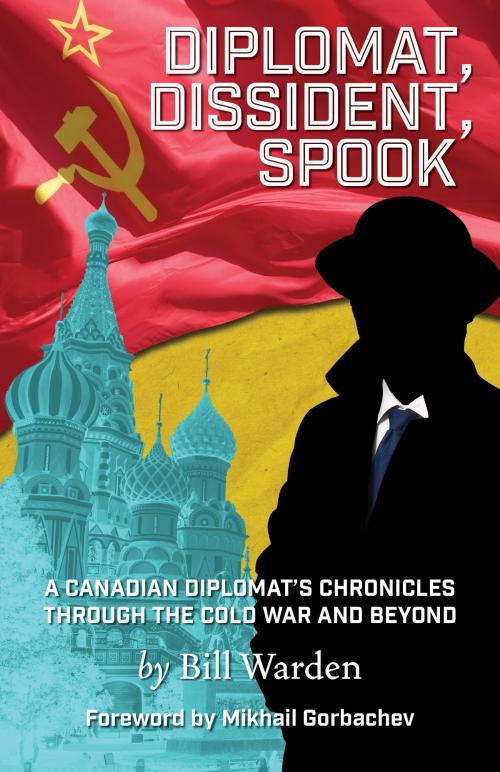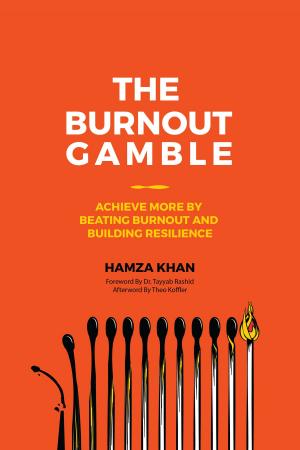| Author: | Bill Warden | ISBN: | 9781773029108 |
| Publisher: | Tellwell Talent | Publication: | September 18, 2017 |
| Imprint: | Tellwell Talent | Language: | English |
| Author: | Bill Warden |
| ISBN: | 9781773029108 |
| Publisher: | Tellwell Talent |
| Publication: | September 18, 2017 |
| Imprint: | Tellwell Talent |
| Language: | English |
In this timely memoir, the late cold warrior-diplomat Bill Warden chronicles his years in the realm of western diplomacy during a period when the world stood at, and pulled back from, the brink of nuclear annihilation. Diplomat, Dissident, Spook relays firsthand the experiences of this former Canadian diplomat who, like Voltaire’s Candide, gets successively disabused of his ideological certainties. The memoir ranges from espionage-central in Berlin in the late 1950s, to the belly of the beast of "the Evil Empire" in Moscow, to Cuba, where the author worked gathering intelligence for the CIA in a clandestine program of cooperation between the US and Canada following the Cuban Missile Crisis. Through subsequent ambassadorial postings to Hong Kong and Pakistan, and missions to Tehran, where he negotiated for the resumption of diplomatic relations with the revolutionary regime in Iran following the highly publicized "Canadian Caper" (and secured the release of a Canadian hostage), Warden witnesses with some dismay as Canada's Foreign Service shifts its focus to, as he puts it, selling widgets, away from what he saw as pivotal political concerns. By the time Warden serves as High Commissioner to India during the turbulence of Indira Gandhi's assassination, the ensuing anti-Sikh pogroms and the Air India passenger jet bombing in 1985 that killed 329 people, the Cold War has all but fizzled, new -isms are challenging Western dominance, and he's disenchanted with the workings of Canadian diplomacy. Warden finally leaves the diplomatic corps for other pursuits, including driving buses, observing elections in dodgy Latin American locales, and takes up work with, among other entities, the Gorbachev Foundation, promoting democratic reforms in the Soviet Union – a fitting bookend, he writes, to his journey as a diplomat through the Cold War years. Mikhail Gorbachev has written the preface to the memoirs.
In this timely memoir, the late cold warrior-diplomat Bill Warden chronicles his years in the realm of western diplomacy during a period when the world stood at, and pulled back from, the brink of nuclear annihilation. Diplomat, Dissident, Spook relays firsthand the experiences of this former Canadian diplomat who, like Voltaire’s Candide, gets successively disabused of his ideological certainties. The memoir ranges from espionage-central in Berlin in the late 1950s, to the belly of the beast of "the Evil Empire" in Moscow, to Cuba, where the author worked gathering intelligence for the CIA in a clandestine program of cooperation between the US and Canada following the Cuban Missile Crisis. Through subsequent ambassadorial postings to Hong Kong and Pakistan, and missions to Tehran, where he negotiated for the resumption of diplomatic relations with the revolutionary regime in Iran following the highly publicized "Canadian Caper" (and secured the release of a Canadian hostage), Warden witnesses with some dismay as Canada's Foreign Service shifts its focus to, as he puts it, selling widgets, away from what he saw as pivotal political concerns. By the time Warden serves as High Commissioner to India during the turbulence of Indira Gandhi's assassination, the ensuing anti-Sikh pogroms and the Air India passenger jet bombing in 1985 that killed 329 people, the Cold War has all but fizzled, new -isms are challenging Western dominance, and he's disenchanted with the workings of Canadian diplomacy. Warden finally leaves the diplomatic corps for other pursuits, including driving buses, observing elections in dodgy Latin American locales, and takes up work with, among other entities, the Gorbachev Foundation, promoting democratic reforms in the Soviet Union – a fitting bookend, he writes, to his journey as a diplomat through the Cold War years. Mikhail Gorbachev has written the preface to the memoirs.















